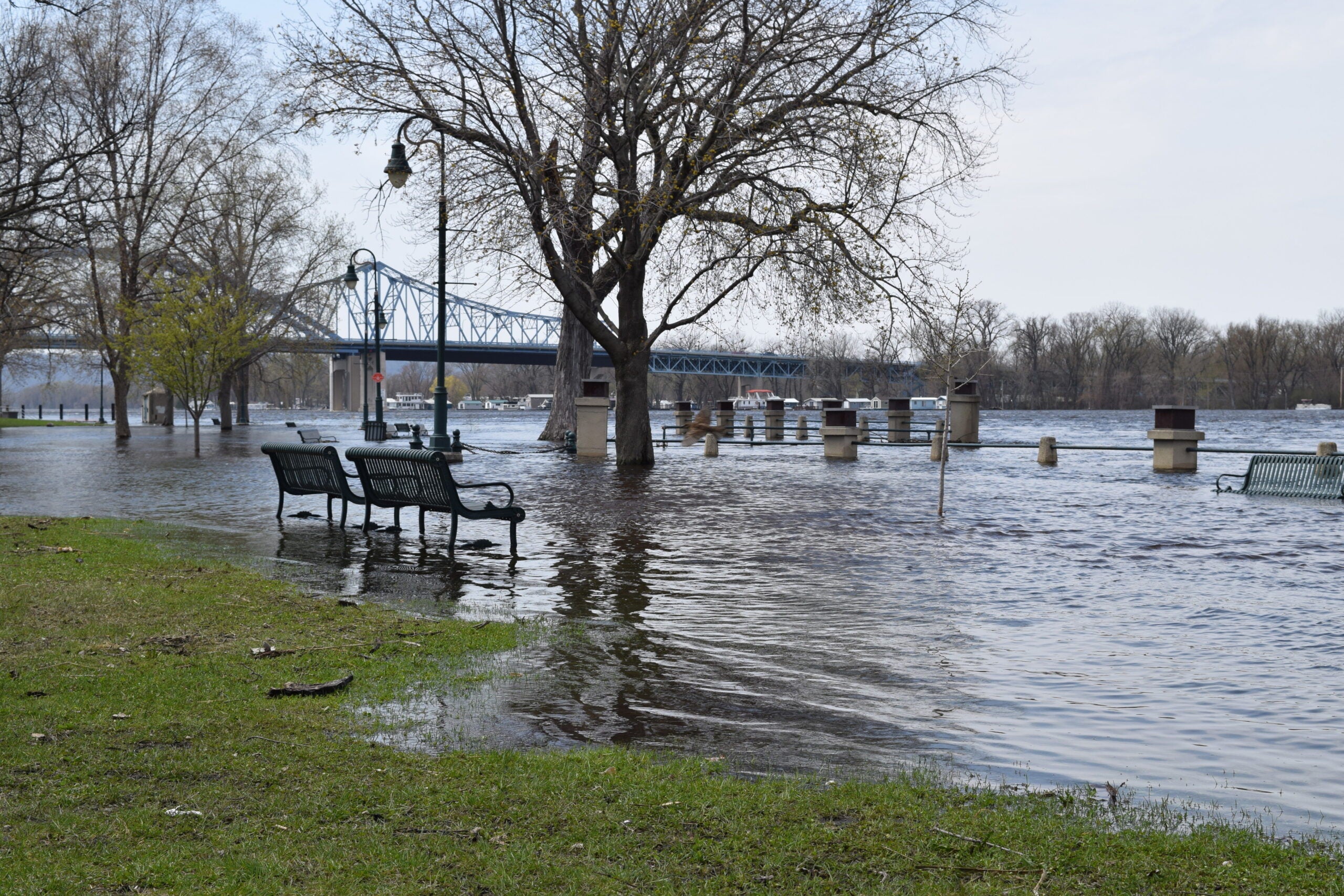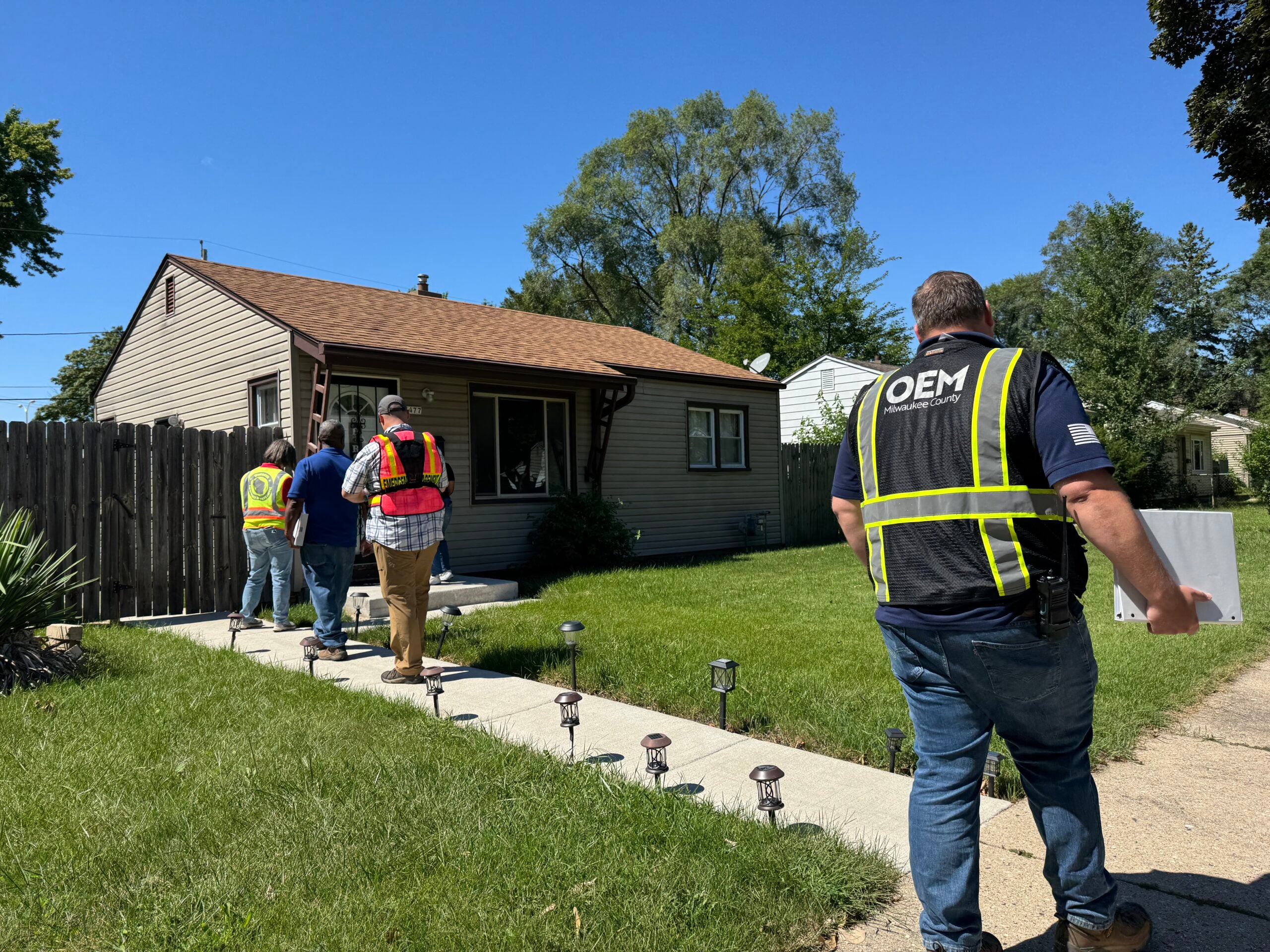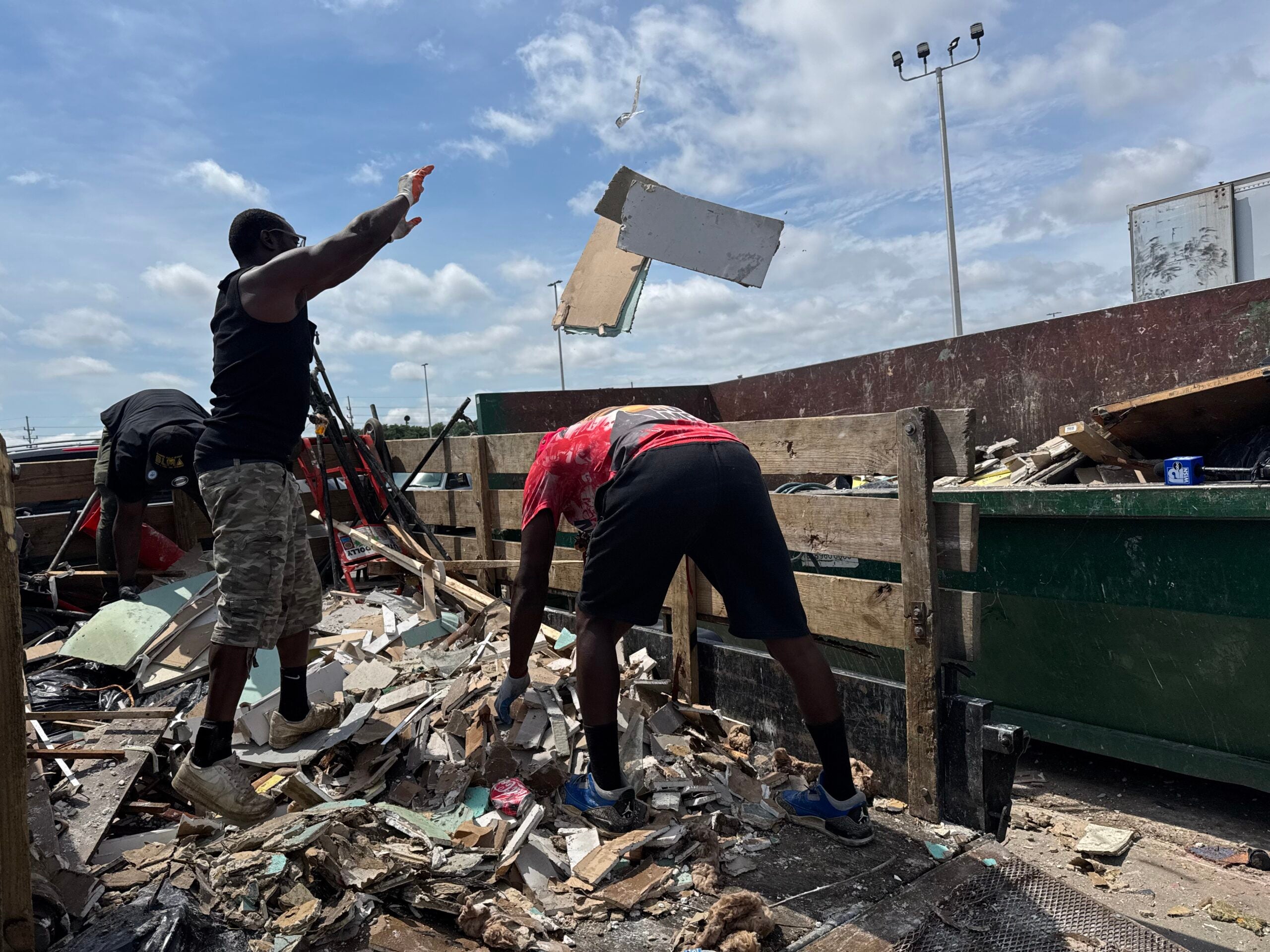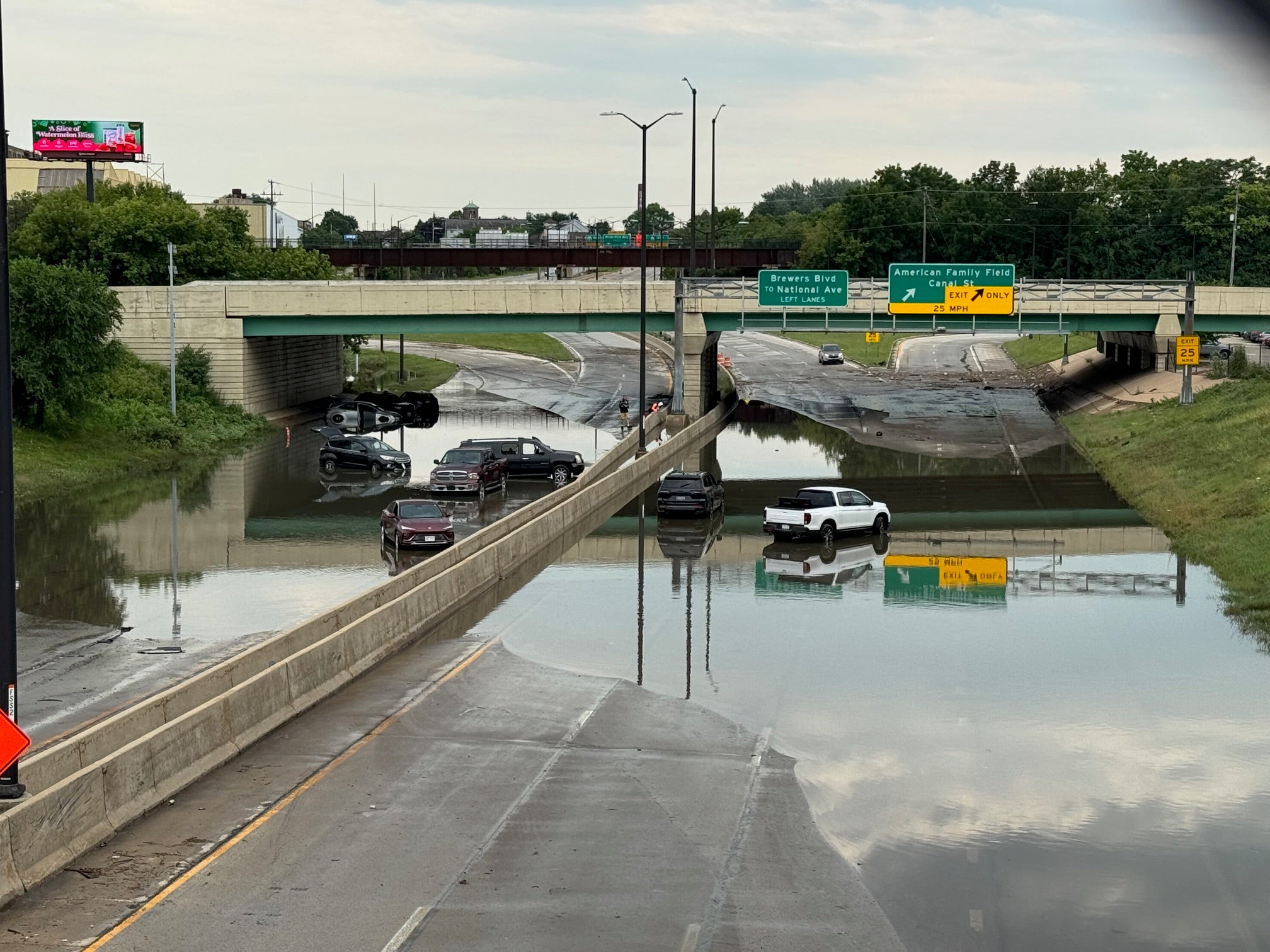The Mississippi River crested in La Crosse on Thursday. Peak flooding will move southward as conditions ease over the weekend.
The river stood at about 16 feet as of Thursday morning, according to Kate Abbott, a meteorologist at the National Weather Service-La Crosse station. The flood reached the third-highest level since recordkeeping began in 1874.
“We still expect to see major flooding occur until Friday evening before it dips down into the moderate flood stage,” Abbott said.
News with a little more humanity
WPR’s “Wisconsin Today” newsletter keeps you connected to the state you love without feeling overwhelmed. No paywall. No agenda. No corporate filter.
Nine counties along the Mississippi River were under flood warnings as of Thursday morning.
“When we see kind of a rapid change in temperatures, like we did a couple of weeks ago, all of that water begins to melt and run into the rivers, which ultimately feed into the Mississippi,” Abbott said.
Some businesses and homes in the downtown area across Riverside Park have been flooded, Abbott said. Pettibone Park and Goose Island are predominantly underwater.
“There’s a lot of water to continue to make its way down,” Abbott said. “It’s at the worst right now. It’ll take a little while for things to start to go back to what we consider normal or for some of those closures to reopen.”
Rapid snowmelt drives flooding
Mike Welvaert is the service coordination hydrologist for the National Weather Service’s North Central River Forecast Center. In a press briefing Thursday, he said officials are keeping an eye on future precipitation leading to a higher risk of flooding. But it appears that over the next week, precipitation will fall under 1 inch for the basin, meaning it won’t add to the system.
He said the remaining snow is “probably not going to contribute to the crest any longer, but it may lengthen how the river does recede.”
Duluth, Minnesota, which borders Superior in northwest Wisconsin, broke a record for the snowiest season earlier this month. It reached about 137 total inches of snow for the season, up from about 135 inches over the 1995-1996 winter.
La Crosse Mayor Mitch Reynolds said managing the aftermath will be costly.
“We’ve had significant damage to parks and some other infrastructure, and it will take a while for that water to recede — and for us to get to the point where we’re able to assess as well as address some of that damage,” he said.
Drew Smith of the U.S. Army Corps of Engineers said the flood is expected to move through the system quickly, taking between several weeks to a month. In 2019, some districts fought floods for about three months, he said.
Mississippi River flooding affects Wisconsin’s neighboring states
The elevated river levels are also hitting Wisconsin’s Midwestern neighbors.
“Anywhere from up near the Twin Cities in Minnesota, down through Dubuque, kind of the southern tip of Wisconsin — all of that part of the Mississippi River is in flood stage,” Abbott of NWS La Crosse said.
Abbott urged people to avoid areas barricaded by law enforcement. She said the amount of water that’s flowing into the river is creating a faster current.
“If you do enter the flooded waters, there could be debris from some of the buildings and areas that have gotten flooded that you might not be able to see,” Abbott said.
The river is expected to crest by Friday evening in McGregor, Iowa, and Prairie du Chien, Wisconsin, according to Abbott.
Wisconsin Public Radio, © Copyright 2025, Board of Regents of the University of Wisconsin System and Wisconsin Educational Communications Board.






